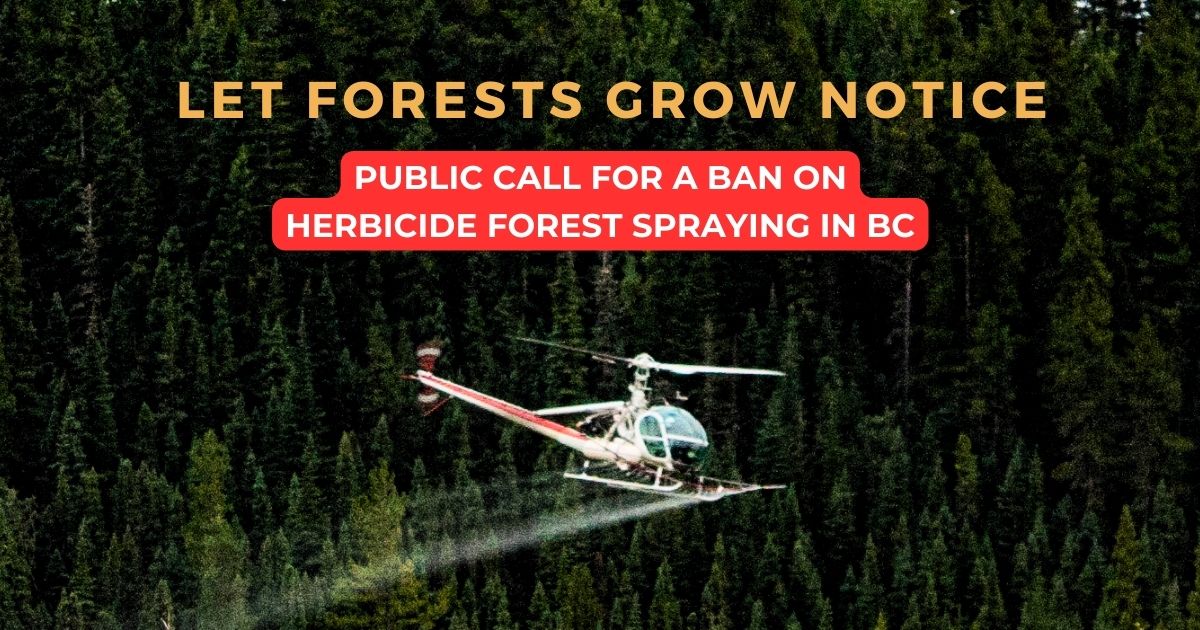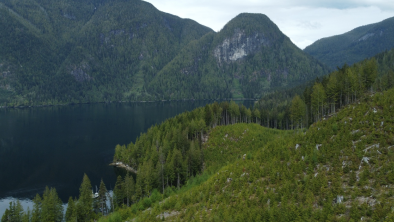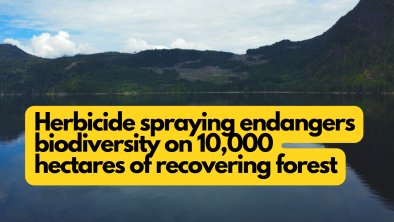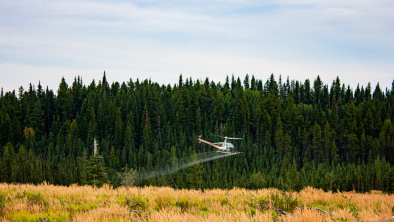Let Forests Grow Notice: Public call for a ban on herbicide forest spraying in BC

REQUEST FOR: A ban on pesticides in logging, including glyphosate, and updating post-logging policies to restore for biodiversity rather than logging values
Sign the Notice to the Government here.
We the undersigned are calling on the Government of British Columbia to ban the use of chemicals like glyphosate in the logging sector and restore cutblocks for biodiversity and traditional food and medicine plants. Glyphosate is a herbicide that targets and kills fungi, bacteria and native plants important for wildlife, traditional food, medicine and overall ecosystem health. The chemical is a probable carcinogen and presents risks to reproductive health.
Herbicides like Glyphosate are used to kill non-commercial species because of supposed benefits to cash-crop commercial species, a practice that doesn’t necessarily produce intended results. Tree plantations are created which contain trees of uniform age, structure and species that are vulnerable to fire, disease and other natural impacts, such as flooding and landslides.
Through the Declaration on the Rights of Indigenous Peoples Act, the provincial government has committed to aligning B.C.’s laws with the United Nations Declaration of the Rights of Indigenous Peoples (UNDRIP). Despite this, consultation with impacted First Nations communities for logging industry Pest Management Plans (PMP) is dismal, occurring sometimes just once every five years and not requiring free, prior and informed consent. Often, consultations are not effectively promoted and impacted First Nations miss the consultation. During this consultation if the Nation does not arrange to have the spray plans shared with them, the next five years of spraying can happen in secrecy. This means members of a First Nation or the public at large have little way to know whether forests they spend time in and utilize have been sprayed with glyphosate or other pesticides.
We call on the B.C. government to introduce policies that mandate natural forest regeneration which will improve soil, plant diversity and add diversity to the fungal species that help transfer resources from tree to tree. In some cases, manual brushing may still be allowed under low intensity forest management plans.
We are calling for an overhaul of the current post-logging management policies that ignore First Nations rights and title and prioritizes corporate interests over nature and biodiversity. The free to grow policy mandates the use of pesticides like glyphosate in regrowing forests. We are calling for a removal of the free to grow policy and new post-logging management policies that aim to maximize biodiversity and traditional food and medicine plants, rather than commercial values.


